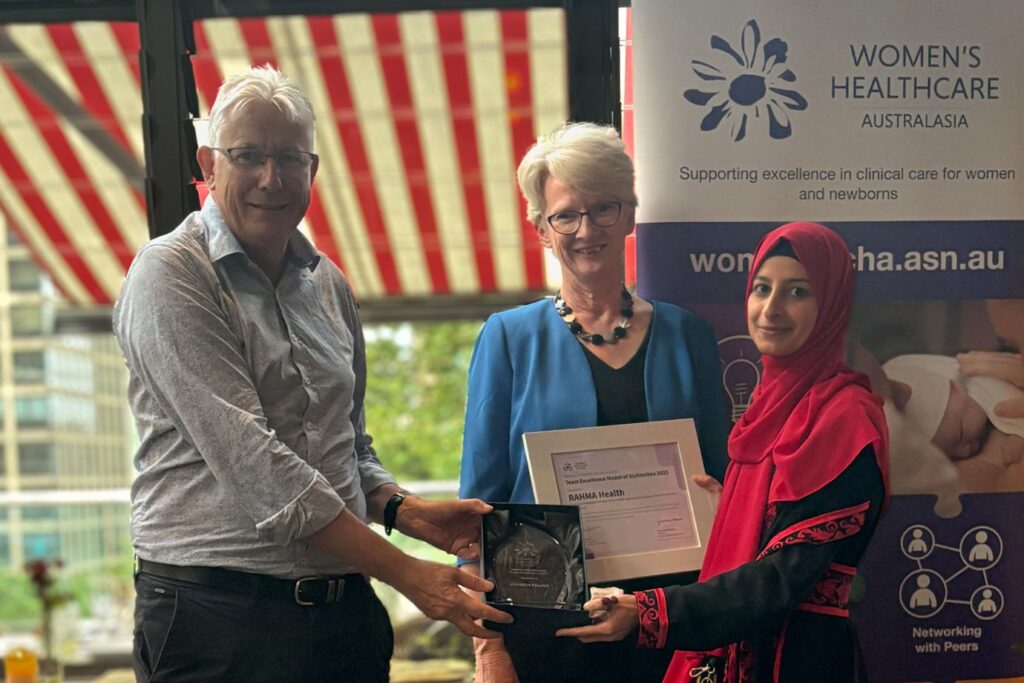When Dr Nour Ismail walked onto the stage in Sydney to receive the Women’s Healthcare Australasia Medal of Distinction on behalf of Rahma Health, she did so with the calm poise of someone accustomed to carrying responsibility.
Nour had only been in Australia a short time, newly arrived as a refugee from Gaza, yet she stood dignified and steady, representing a team that works every day to support women, parents, and children globally.
When she returned home after the ceremony, I asked her if she would do us the honour of keeping the trophy and framed citation as thank you for her contribution to our work. She told me a story in response, and I cried for two days.
Dr Nour Ismail is an internal medicine physician, a new Australian, and someone who has always defined herself through her hard work. Her identity is woven through years of discipline, long nights, and relentless striving. She excelled in school, earned top results in medical training, and built a reputation as a deeply conscientious doctor. She described periods of her life where she barely saw her husband because she was working such long hours at the hospital. That sacrifice, that devotion, was central to how she understood herself.
In her home in Gaza, she had a wall filled with the awards she had earned since primary school. Certificates from childhood, academic medals, trophies, photos—each one placed carefully, each one representing a step in her journey. That wall reminded her of who she was: capable, determined, principled. It held her identity.
And then, in the war, she lost everything.
Her entire home was bombed. Nothing was spared. Sentimental things disappeared instantly—the tiny baby clothes she had saved with such tenderness, the photo albums, the small keepsakes. And every single one of her awards, the tangible symbols of her identity, accumulated over decades, were reduced to dust.
Later in the war, she lost family too. Sara and Manal, her niece and niece’s mother, were killed in an airstrike in July last year. Two names that were part of her everyday reality suddenly became memories she carries in her heart.
This war has taken so much from so many. Palestinians have lost homes, families, keepsakes, and the threads of identity. Israeli families have endured unbearable loss, grief, and the shattering of their worlds. No one is untouched. Children, especially. No child emerges from war without wounds that last a lifetime. Childhood simply cannot exist or thrive in environments defined by fear, displacement, and the constant shadow of death. The consequences follow children into adulthood, shaping their bodies, their minds, and their futures.
When Nour told me her story, I understood the full weight of handing her the award. Not as a replacement, as nothing can replace what was lost, but as a small anchor in a new land, a marker of who she is and who she continues to be. A reminder that her identity, her brilliance, her capacity to contribute, and her humanity did not disappear under the rubble.
We live in a world where people’s lives can be upended in a single moment. Yet we also live in a world where human dignity—equal, universal, non-negotiable—must be the foundation for everything we build.
We must create systems, communities, and countries defined by love, connectedness, and a profound respect for each person’s worth. We need a world that cannot tolerate the conditions that give rise to war. A world where the safety of children, the preservation of memory, and the protection of identity are sacred responsibilities.


